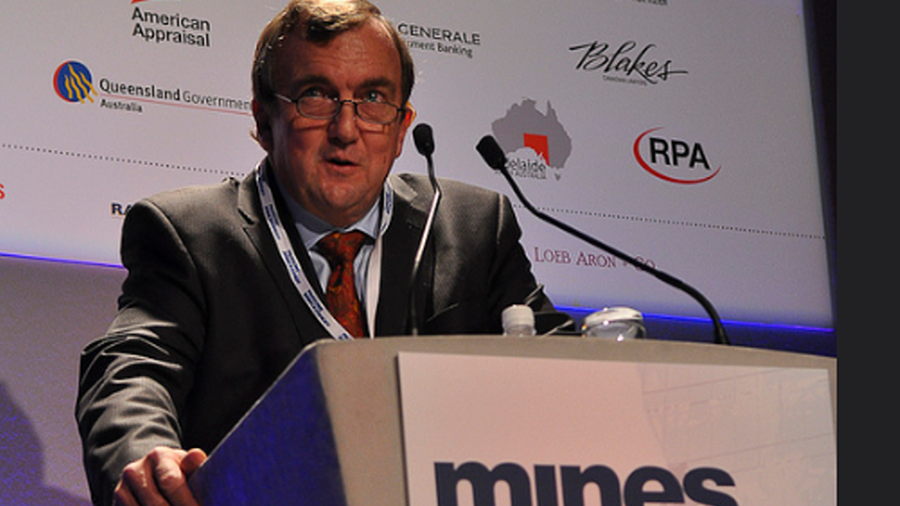
LONDON (Reuters) – African miner Randgold Resources (RRS.L) is looking to make its first acquisition outside its home continent in North and South America to diversify its portfolio of assets, its chief executive Mark Bristow told Reuters.
The London-listed miner has invested throughout the commodity price downturn, generated cash and steadily increased dividends while rivals have been struggling with big debts taken on to fund acquisitions and expansion.
Flush with cash, Randgold is on the hunt for gold mines outside Africa.
“We have $900 million of ammunition to do anything that arises,” Bristow said.
“We would rather stay in our time zone and go West. So South America, North America, the Americas in general,” he said, declining to name any countries.
Africa’s main metals producers, including the Democratic Republic of Congo, Tanzania and South Africa, have recently moved to review mining regulations and codes, spooking potential investors.
“There hasn’t been genuine exploration in Sub-Saharan Africa in the last few years,” he said.
“This move to review the mining codes since the collapse of the (commodity) Supercycle has chased away serious explorers.”
The proposed new mining code in the DRC, which its parliament approved last month, could see royalties on cobalt, a vital component in electric car batteries, increase five-fold to 10 percent.
It also removes a stability clause in the current law protecting miners from changes to the fiscal and customs regime for 10 years.
Bristow has said Randgold stands to lose about $10 million per year should the new mining code be signed into law.
Last year, about 75 percent of gold mine transactions were in low-risk jurisdictions such as North America and Australia, according to an EY report this week.
Bristow said Randgold’s experience of operating in countries with lots of red tape and poor infrastructure was a bonus.
“Imagine if we had a chance to operate in Canada or some of the South American countries that are more infrastructurally endowed.”
But he ruled out looking for potential targets in Europe, Australia, Russia or Asia where, in some cases, mines tend to be small and local partners difficult to find.
Randgold has operations in Mali, Senegal, DRC and Ivory Coast, most of which started as exploration projects. It has previously shied away from acquisitions.
The company produced about 1.3 million ounces of gold last year. Its business model is based on a $1,000 an ounce gold price.
Randgold proposed a doubling of its dividend to $2 per share, when it reported its latest results earlier this month.
“If we don’t find anything that fits our criteria we should continue to give money back to shareholders,” Bristow said.
Randgold’s shares rose 15 percent in 2017 but are down by similar margin so far this year on market concerns over its DRC business. The gold price has added about 13 percent in the last year to about $1,340 per ounce.
(Written by Zandi Shabalala)